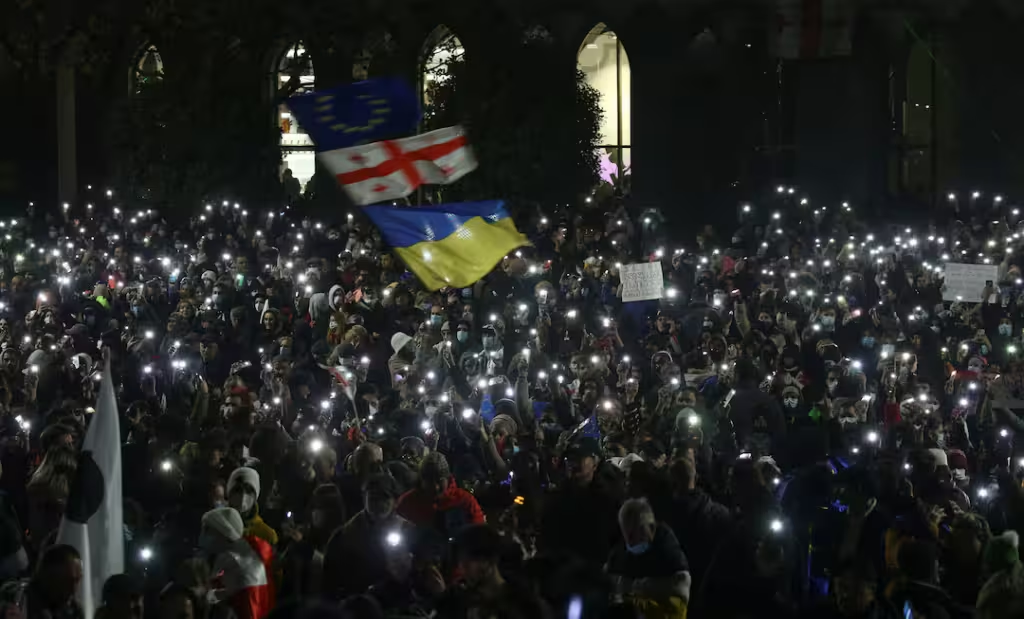Tensions escalated in Tbilisi, Georgia, on Friday after the ruling Georgian Dream party announced it would halt European Union accession talks until 2028, sparking widespread protests across the capital. The announcement, which contradicts Georgia’s constitutional commitment to EU membership, prompted thousands of demonstrators to gather outside the parliament building, waving Georgian and EU flags and demanding that the government reverse its decision. The protests quickly turned violent, with riot police deploying water cannons and pepper spray to disperse the crowds.
The protests, which began Thursday, intensified as protesters hurled fireworks and confronted police officers. Elene Khoshtaria, a leader of the opposition Coalition for Change, was injured during the crackdown, suffering a broken hand. She condemned the actions of the police, drawing comparisons to the authoritarian tactics used in Russia and Belarus. “We are not going to give in, we are not going to give up,” Khoshtaria said in an interview, urging the international community to support Georgians who advocate for European values.
The decision to freeze EU talks has drawn fierce criticism from both the public and civil servants in Georgia, where EU membership enjoys overwhelming support. Hundreds of employees from ministries such as foreign affairs, defense, education, and justice signed open letters denouncing the move as unconstitutional. In addition, several private universities suspended classes in protest, and business groups have called on the government to reconsider its stance, which has worsened relations between Georgia and the West.
The Georgian Dream party, which secured nearly 54% of the vote in the October elections, claims the EU’s stance amounted to “blackmail,” framing its decision as necessary to protect Georgia’s national interests and traditional values. However, critics argue that the party has shifted towards authoritarianism, with its recent passing of laws targeting foreign agents and limiting LGBT rights, which some view as heavily influenced by Russia. The EU’s ambassador to Georgia expressed deep disappointment, calling the government’s actions “heartbreaking” and condemning the harsh response to peaceful demonstrators.
The freeze in EU accession talks marks a significant setback in Georgia’s path toward integration with the West, as the country continues to grapple with internal divisions and increasing tensions with its European and American allies. The government’s growing alignment with Russia and its crackdown on dissent have raised alarm both domestically and internationally, with many questioning the future of Georgia’s European aspirations.



